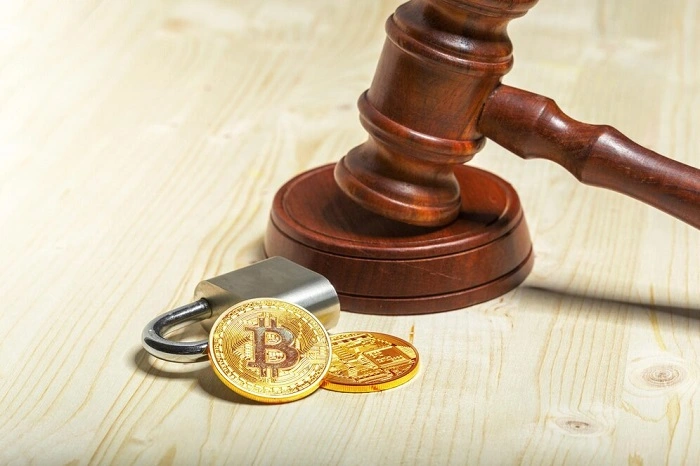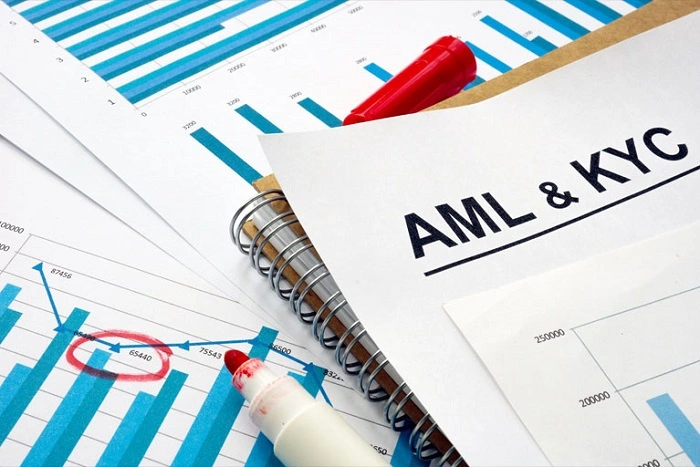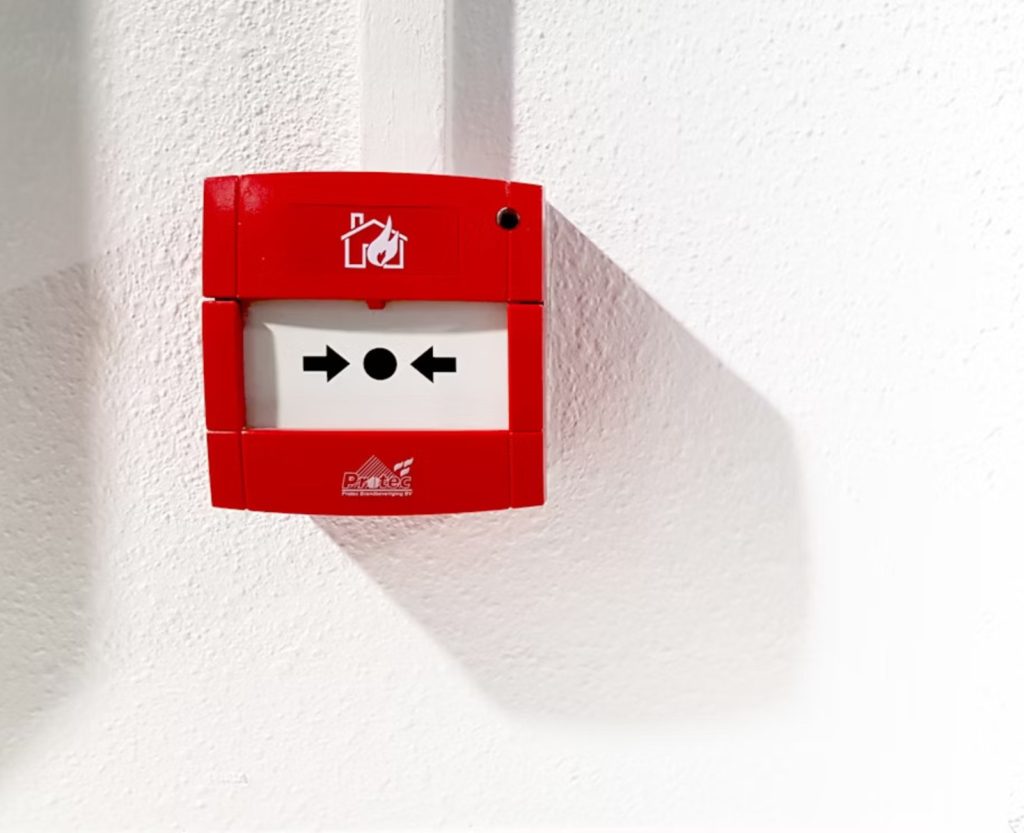However, navigating the asset tokenization regulatory landscape is challenging. Regulations vary across countries, making compliance crucial. This article explores key aspects of asset tokenization regulation, offering practical insights to help you stay ahead in this dynamic field.
Glossary of key terms
- Asset tokenization: The process of converting a real-world asset into a digital token on a blockchain.
- Security token: A token representing ownership or rights in an underlying asset, similar to a traditional security.
- Utility token: A token that grants access to a service or product offered by a company.
- KYC (Know your customer): Regulations requiring businesses to verify the identity of their customers to prevent money laundering and fraud.
- AML (Anti-money laundering): Regulations designed to prevent criminals from using the financial system to launder money.
Overview of asset tokenization regulation
What is asset tokenization?

Asset tokenization is the process of converting ownership rights in an asset into a digital token on a blockchain. This digital representation allows for the fractional ownership of assets, making them more accessible and liquid. For instance, a piece of real estate can be tokenized into multiple digital shares, enabling a broader range of investors to own a portion of the property without needing to purchase it outright.
Current state of asset tokenization regulations
The regulatory landscape for asset tokenization is currently in a state of flux and varies significantly across different jurisdictions. While countries like the United States and the European Union are making strides in creating comprehensive regulatory frameworks, many other regions are still in the early stages of developing their policies.
In the U.S., the SEC requires tokenized securities to follow existing securities laws, but there aren’t yet specific rules for blockchain-based securities. This means companies must structure tokenized real-world assets (RWAs) to fit within current regulations. Recently, the SEC has focused on ensuring that exchanges and brokers dealing with these assets are properly registered.
In the EU, the regulatory approach has been more fragmented, with each country having its own rules. However, MiCA (Markets in Crypto-Assets Regulation) was voted into law in 2023, aiming to standardize crypto regulations across all member states. Once MiCA is fully implemented, crypto firms can operate throughout the EU if they obtain a license in any member country.
This mix of evolving and fragmented regulations means tech companies must stay updated and flexible to comply with different asset tokenization laws.
Why understanding regulations matters
For tech companies venturing into asset tokenization, a thorough understanding of regulations is critical. Here’s why:
- Compliance is key: Navigating the regulatory landscape is crucial to avoid hefty fines, project delays, reputational damage, and limitations on market access. Adhering to regulations ensures that your tokenized assets are legally recognized and can be traded without legal obstacles.
- Building trust: Demonstrating compliance with regulatory standards is essential to gain investor confidence. Investors are more likely to trust and invest in companies that operate transparently and within the legal framework. This trust can be a significant competitive advantage in the market.
- Future-proofing your business: Staying ahead of regulatory developments allows tech companies to anticipate changes and adapt their business models accordingly. This proactive approach ensures long-term success as the regulatory landscape continues to evolve. Being compliant from the outset positions your company as a leader in the industry, ready to capitalize on new opportunities as they arise.
4 Main regulatory questions for tech companies
With a clear understanding of why regulations matter, diving into the specific regulatory questions that tech companies must address is essential. These questions will help you navigate the complex regulatory environment effectively.
How are tokenized assets classified?
The regulatory treatment of tokenized assets largely depends on their classification. This classification can determine how the asset is regulated and which laws apply.
- Security tokens: These tokens represent ownership in an underlying asset, such as equity in a company or real estate. They are subject to securities regulations, which can vary significantly by jurisdiction. For instance, in the United States, the SEC classifies most tokenized securities under existing securities laws, requiring compliance with stringent rules regarding issuance and trading.
- Utility tokens: These tokens provide access to a specific product or service within a blockchain ecosystem. They are generally not considered securities but may still be subject to consumer protection laws and other regulations.
- Other tokens: Depending on their specific use case, tokens might fall into other categories, such as payment tokens or stablecoins, each with its own regulatory implications.
What licensing requirements exist for issuing and trading tokenized assets?
Tech companies need to understand the licensing rules for issuing and trading tokenized assets. These rules can differ significantly based on where they operate and the kind of asset they’re tokenizing.
In many regions, issuing tokenized securities requires a license similar to those needed for traditional securities offerings. This involves filing comprehensive disclosures and complying with regulations designed to protect investors. For example, in the U.S., companies must register their token offerings with the SEC unless they qualify for an exemption.
Trading tokenized assets also typically require specific licenses. Platforms that facilitate the trading of these assets often need to be registered as exchanges or broker-dealers. Compliance with these licensing requirements is essential to operate legally and avoid significant penalties.
What are the kyc/aml compliance considerations for tokenized assets?
Know Your Customer (KYC) and Anti-Money Laundering (AML) regulations are critical components of the regulatory framework for tokenized assets. These regulations help prevent financial crimes and ensure the integrity of the financial system.
KYC procedures involve verifying the identity of customers before they can participate in the tokenization process. This is crucial for preventing fraud and ensuring compliance with regulatory standards. Companies must implement robust KYC processes to verify customer identities accurately.
AML regulations require companies to monitor transactions for suspicious activity and report any that might indicate money laundering or other financial crimes. This involves maintaining comprehensive records of transactions, conducting regular audits, and staying vigilant against potential illicit activities.

Which regulatory bodies oversee asset tokenization?
The regulatory landscape for asset tokenization varies globally. Asset tokenization companies must identify relevant regulatory bodies in their target markets.
In the United States, the SEC regulates securities, including tokenized securities. The Commodity Futures Trading Commission (CFTC) may also oversee tokenized commodities. The Financial Conduct Authority (FCA) regulates tokenized assets in the United Kingdom, focusing on consumer protection and market integrity.
In the European Union, each member state has its regulatory authority. However, the European Securities and Markets Authority (ESMA) is working to harmonize regulations across the EU. ESMA provides guidelines to create a more uniform regulatory environment
Knowing the regulatory authorities involved allows digital companies to comply with specific standards while navigating the complicated terrain of asset tokenization regulation.
7 regulatory considerations and compliance requirements for tech companies
Building on our understanding of the critical regulatory questions, tech companies must consider specific regulatory and compliance requirements to ensure successful asset tokenization projects. Here are seven crucial considerations:
Jurisdictional differences
Regulatory frameworks vary significantly across jurisdictions. Tech companies must research and understand the regulations in each country they operate in. For example, the US SEC has different requirements than the UK’s FCA or the EU’s ESMA. Understanding these differences is vital to ensure compliance and avoid legal issues. Companies should also be aware of how tokenized assets are classified in different jurisdictions. They may be considered securities, requiring registration and adherence to securities regulations.
Regulatory sandboxes
Many jurisdictions offer regulatory sandboxes. These allow tech companies to test their tokenization projects in a controlled environment. Sandboxes provide a safe space for innovation while ensuring compliance. Companies should explore participating in these programs. They can gain insights and feedback from regulators, helping refine their offerings before full-scale deployment. This also aids in understanding AML and KYC requirements.
Ensuring data protection and privacy
Compliance with data protection regulations like the GDPR in the EU is crucial. Companies must implement strong data security measures to protect sensitive information and ensure that personal data is processed legally. This includes obtaining consent, following cross-border data transfer rules, and maintaining robust data security.
Investor protection
Protecting investors is essential. Companies must ensure transparency, provide accurate information, and maintain high standards of conduct. This includes clear disclosures about the tokenized assets, associated risks, and investor rights. Ensuring investor protection builds trust and complies with regulations.
Tax compliance
Taxation is a complex aspect of asset tokenization that varies widely by jurisdiction. Companies must understand the tax implications of their tokenized assets, including how they are classified for tax purposes and what tax obligations arise from their issuance and trading. Consulting with tax professionals and staying updated on changes in tax laws related to digital assets is crucial for compliance.
Blockchain and technology regulations
Some jurisdictions have specific regulations governing blockchain technology and digital assets. Compliance with laws related to smart contracts and decentralized applications (DApps) is essential. Companies must also adhere to rules on data privacy and encryption methods used in tokenization projects.
Cross-border and continuous regulatory monitoring
Tokenization projects involving international transactions must navigate cross-border regulatory frameworks. The regulatory landscape for asset tokenization is constantly changing. Companies must monitor regulatory developments and adjust their compliance strategies accordingly. This proactive approach ensures ongoing compliance and minimizes the risk of non-compliance.
In summary, tech companies must navigate a complex regulatory environment for asset tokenization. They need to grasp the regulations, follow tax laws, and stick to blockchain rules to succeed in their tokenization projects.
Compliance tips for tech companies
To ensure compliance and maintain a strong position in the asset tokenization market, tech companies must adopt proactive measures. Here are some actionable steps to help you stay compliant and navigate the regulatory landscape effectively.
1. Subscribe to regulatory newsletters & alerts
Staying informed about evolving regulations is crucial. Subscribing to newsletters and alerts from regulatory bodies and industry sources can keep you updated on the latest developments. Below are the resources:
United States:
- Securities and Exchange Commission (SEC) – Subscribe to “News Alerts” for updates on digital asset regulation.
- Commodity Futures Trading Commission (CFTC) – Subscribe to “News Releases” for updates on digital asset regulation.
Europe:
- European Securities and Markets Authority (ESMA) – Subscribe to “News” for updates on digital asset regulation.
- Financial Conduct Authority (FCA) – UK – Subscribe to their newsletter for updates on cryptoassets.
Global:
- International Organization of Securities Commissions (IOSCO) – Follow their news and research on digital assets.
Industry news & reports:
- CoinDesk – Provides in-depth news coverage and analysis on the blockchain and cryptocurrency industry, including asset tokenization.
- The Block – Offers breaking news, insightful research reports, and market data on digital assets.
2. Consulting with legal and regulatory experts
Navigating the complex regulatory landscape requires specialized knowledge. Consulting with legal and regulatory experts can provide valuable insights into the specific requirements for your tokenization projects. These experts can help interpret regulations, advise on compliance strategies, and ensure that your operations adhere to legal standards.
- Seek expertise: Engage with law firms and consultants who specialize in digital assets and blockchain technology. Their expertise can help you understand the nuances of regulations in different jurisdictions and avoid potential legal pitfalls.
- Regular audits: Conduct regular compliance audits to identify and address any gaps in your processes. This proactive approach helps mitigate risks and demonstrates your commitment to regulatory compliance.
3. Building compliance features into tokenization platforms
Incorporating compliance features directly into your tokenization platform is essential for ensuring ongoing adherence to regulations.
- Automated KYC/AML processes: Implement robust Know Your Customer (KYC) and Anti-Money Laundering (AML) processes. Automated systems can streamline these procedures, making it easier to verify customer identities and monitor transactions for suspicious activities.
- Smart contract compliance: Ensure that your smart contracts are designed to comply with regulatory requirements. This includes features such as automated reporting, compliance checks, and the ability to freeze or revoke tokens if necessary.
- Data security: Prioritize data security to protect sensitive information and comply with data protection regulations such as GDPR. Use encryption, secure storage, and regular security audits to safeguard user data.

4. Partnering with regulated entities for specific services
Partnering with regulated entities can enhance your compliance capabilities and provide additional credibility to your tokenization projects.
- Licensed exchanges: Collaborate with licensed exchanges to trade tokenized assets. These platforms are already compliant with regulatory standards, ensuring a safer and more reliable trading environment for your tokens.
- Custodians: Work with regulated custodians to secure the storage of digital assets. Custodians are subject to stringent regulatory requirements, providing an added layer of security and compliance for your assets.
- Payment processors: Partner with regulated payment processors to handle tokenized asset transactions. This ensures that all financial activities related to your tokenization projects comply with relevant regulations.
Conclusion
Facing and dealing with the complex legal environment for asset tokenization is inevitable. However, harmonizing regulations and simplifying compliance for tech companies operating internationally will be entirely possible in the future. This requires constant monitoring and adaptation to keep up with the evolving asset tokenization regulatory landscape.
To successfully implement tokenization projects, companies must seek professional guidance tailored to their specific needs. Engaging with experts can help solve complex problems, ensure compliance, and drive innovation in the asset tokenization space.
For specialized assistance, reach out to Synodus. Our team of experts can help you navigate the complexities of asset tokenization, ensuring your projects are compliant and successful. Contact Synodus today to get started on your path to innovation and compliance.
How useful was this post?
Click on a star to rate it!
Average rating / 5. Vote count:
No votes so far! Be the first to rate this post.




